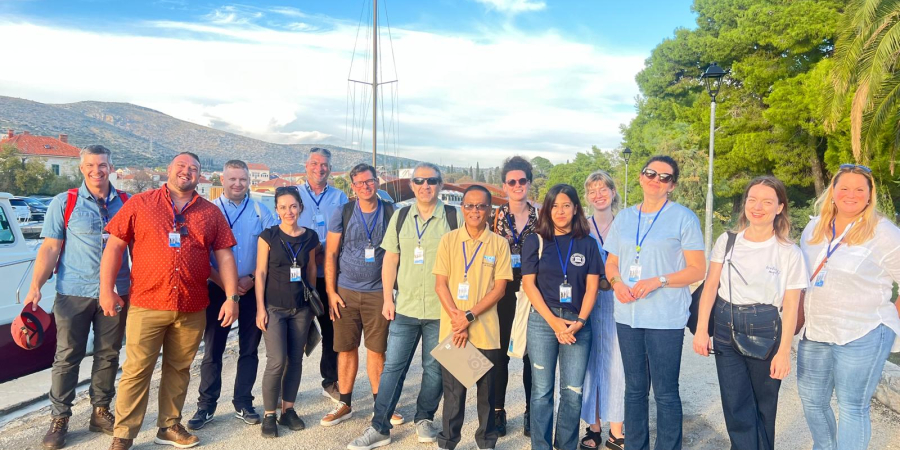
Tackling floods: a global threat to cultural heritage
From September 22 to 30, 2024, ICCROM's First Aid and Resilience for Cultural Heritage in Times of Crisis (FAR) programme organized a blended course on flood risk mitigation in Trogir, Croatia.
By 2040, exposure to damaging flooding is expected to increase from 2.2 billion to 3.6 billion people, trending towards half the world’s population.
Climate variability and change are increasing the frequency and intensity of floods. Along the coasts, the flood risk is increased due to storm surges and rising sea levels. Inland, the risk of flooding has increased due to high precipitation, soil degradation, impervious surfaces, inadequate flood defenses and several other factors.
Changes in land cover, such as the removal of vegetation coupled with the impacts of climate change, contribute to an elevated risk of flooding. Intense precipitation, prolonged duration, frequent repetition of precipitation events, or a combination thereof can trigger extreme floods.
Flood-related impacts represent one of the most frequent, serious and damaging threats to cultural heritage. Rising sea levels may cause the disappearance of the world’s most iconic historic sites and cities. The consequences of flooding for culture and heritage are often amplified by existing vulnerabilities, such as lack of coordinated flood risk management plans for heritage sites, poor maintenance, massive urbanization and improper drainage.
This course focuses on developing solutions for flood risk mitigation by involving diverse heritage professionals, flood risk management specialists, hydrologists, climate scientists, and emergency response agencies. Participants will enhance their knowledge and skills for understanding how climate change and other risk drivers influence the flood risk to human settlements and heritage. Simultaneously, they will be able to identify flood risk mitigation strategies for different forms of heritage.
Through interactive discussions, group work and simulations – with the World Heritage City of Trogirits and its memory institutions serving as a central case study – participants will be encouraged to identify risk management strategies for their heritage sites. A specific module of the course will also highlight ways we can tap into traditional and indigenous knowledge for managing flood risks.
After the in-person training, participants will conduct comprehensive risk assessments at their respective heritage sites and implement at least two to three risk management strategies. The outcomes of their projects will be disseminated during an online meeting and compiled in a publication.
By the end of the course, participants will be able to:
This course offers a unique collaborative learning opportunity for mid-career professionals, including but not limited to site managers, architects, librarians, museologists, engineers, archivists, curators, conservators, hydrologists, and experts from disaster risk management, humanitarian aid, urban planning, civil protection, climate science, etc.
Online Orientation Session: 17 – 19 September 2024
In-person training in Trogir, Croatia: 22 – 30 September 2024
Follow-up project implementation (in participants’ selected heritage site/institution): 01 November 2024 – 30 April 2025
To apply, each candidate must propose a heritage institution or site for which they would like to improve flood risk mitigation and preparedness. Furthermore, to strengthen their candidature, applicants should apply with a representative from their local disaster risk management agency, civil protection, or any other relevant stakeholders directly responsible for managing risks at the applicant’s chosen heritage place.
Please note that if you are not employed at the heritage place you have selected as your case study site, upon selection, you will be required to produce a letter specifying that you have permission to work with the staff and implement flood risk management measures at the site.
To apply, please fill out the online application form.
The deadline for applications is 5 March 2024.
EUR 900
To facilitate the participation of a diverse group of professionals, we will offer a limited number of scholarships for participants applying from countries most affected by climate change-induced floods or with a history of flood-related threats to all types of heritage (movable, immovable and intangible).
Supported by the Canadian Conservation Institute
For further information, please contact: far_programme@iccrom.org